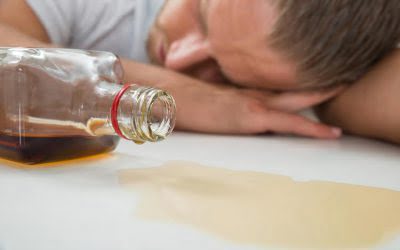How to Reverse Brain Damage From Alcohol
But they need to know how you feel and what you’re experiencing to help you get the right diagnosis and https://nofcointernational.com/hallucinogen-persisting-perception-disorder/ treatments. Your provider will suggest treatments to help you manage the symptoms you’re experiencing. But there’s no way to reverse the brain damage from alcohol-related dementia. Adopting responsible drinking practices, seeking professional help, and engaging in alcohol recovery programs are crucial steps to reduce alcohol-related memory loss. Remember, it’s never too late to make positive changes and prioritize your cognitive health.
Nutritional Support for Brain Recovery

In a typical LTP experiment, two electrodes (A and B) are lowered into a slice of hippocampal tissue kept alive by bathing it in oxygenated artificial cerebral spinal fluid (ACSF). A small amount of current is passed through electrode A, causing the neurons in this area to send signals to cells located near electrode B. Electrode B then is used to record how the cells in the area respond to the incoming signals. Next, a specific pattern of stimulation intended to model the pattern of activity that might occur during an actual learning event is delivered through electrode A. When the original stimulus that elicited the baseline response is delivered again through electrode A, the response recorded at electrode B is larger (i.e., potentiated).

What is the prognosis for alcohol-related dementia?
- Drinking alcohol in moderation — 1 to 2 drinks for men and 1 for women — may not always increase a person’s risk of dementia.
- Overall, treatment options for alcohol-related memory loss involve addressing deficiencies, seeking support for alcohol use disorder, exploring potential medications like memantine, and prioritizing a lifestyle free from alcohol.
- This speculation was based on the observation that acute alcohol exposure (in humans) produces a syndrome of memory impairments similar in many ways to the impairments produced by hippocampal damage.
- He was arrested for driving while intoxicated, but he has no memory of any of this.
Being aware of potential signs of intoxication can also be helpful in understanding your limitations. Excessive alcohol use isn’t the only thing that can cause blackouts or brownouts. Substance misuse on its own or with alcohol can increase your likelihood of experiencing a Alcohol Use Disorder blackout.
- The best way to reverse memory loss from alcohol is to stop drinking, although supplements such as thiamine are also beneficial as they help boost brain function.
- A blackout is a loss of the ability to make memories, but people are still conscious when they’re blackout drunk.
- The number isn’t surprising considering almost 25 percent of adults binge-drink every month, according to stats from the National Institute on Alcohol Abuse and Alcoholism.
- Sleep therapy or support from recovery programs can help people with insomnia caused by alcohol withdrawal.
- Alcohol can affect our ability to create new memories, which is how alcohol can cause blackouts.
Recovery Residences

Retrieval refers to the process of accessing and recalling stored memories. ptsd blackouts Alcohol can interfere with this process, making it challenging to retrieve memories formed before or during alcohol consumption. This interference can result in temporary memory lapses or difficulty recalling specific details or events.
